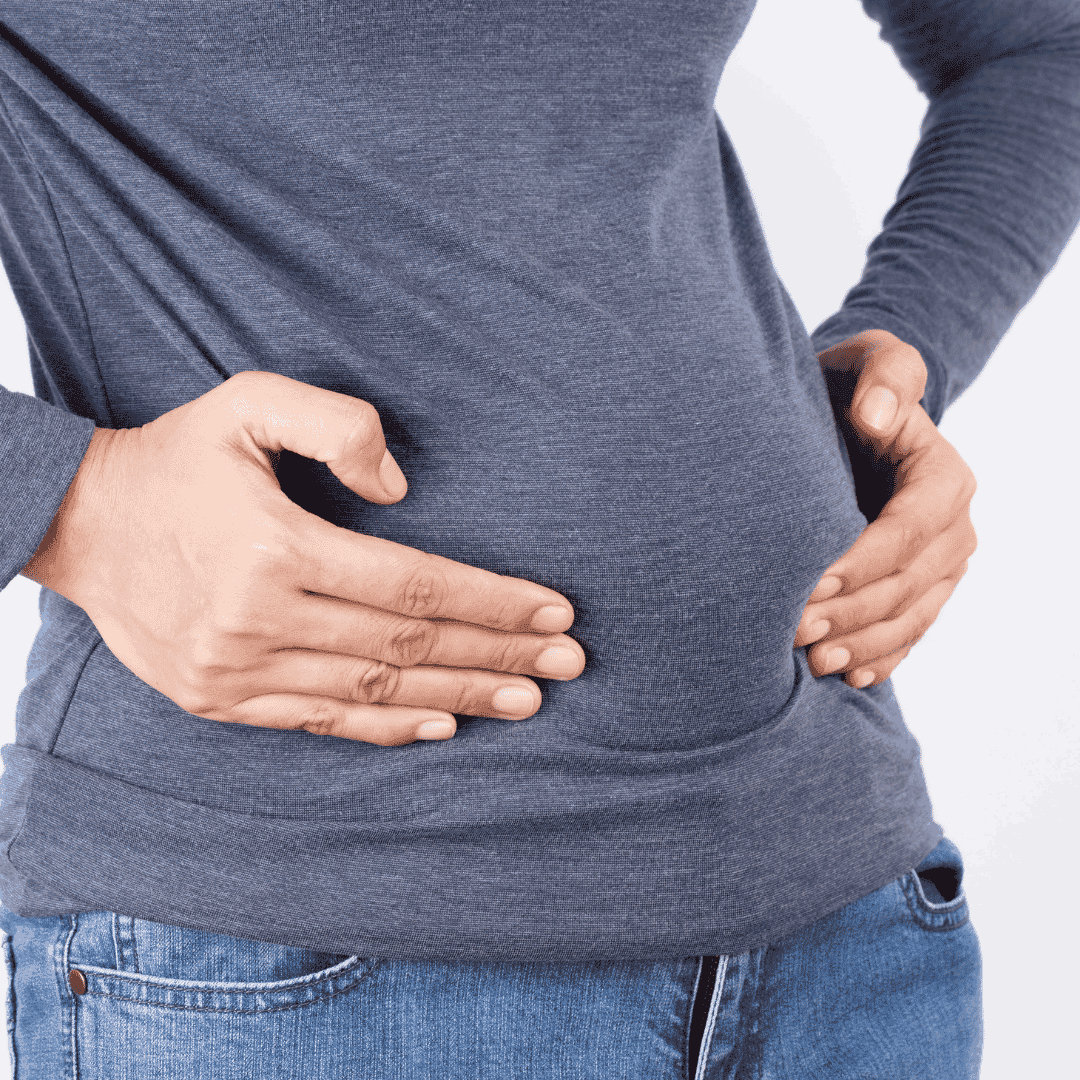Requirements for a Duodenal Switch in Turkey
.jpg)
Considering a duodenal switch can be a significant step toward a healthier life, especially if you've struggled with severe obesity. Turkey has emerged as a leading destination for bariatric surgeries like the duodenal switch, attracting patients worldwide due to its combination of advanced medical facilities, highly skilled surgeons, and cost-effective treatment options. Understanding the specific requirements is crucial for anyone exploring this transformative procedure in Turkey.
Navigating the journey to bariatric surgery involves meeting certain criteria designed to ensure both the safety and long-term success of the procedure. From specific BMI thresholds and a history of unsuccessful weight loss attempts to comprehensive medical and psychological assessments, these requirements are in place to determine if the duodenal switch is the right option for your individual health profile. Let's delve into what's generally expected for patients seeking a duodenal switch in Turkey.
What is the primary BMI requirement for a duodenal switch in Turkey?
The Body Mass Index (BMI) is a critical factor in determining eligibility for a duodenal switch in Turkey, as it is globally for bariatric surgery. Surgeons typically look for a BMI of 40 kg/m² or greater, indicating severe obesity. This threshold suggests that conservative weight loss methods have likely been insufficient, and surgical intervention is medically justified.
However, the criteria can be slightly broader for individuals with a BMI of 35 kg/m² or higher who also suffer from one or more significant obesity-related co-morbidities. These co-morbidities often include conditions such as type 2 diabetes, severe sleep apnea, uncontrolled high blood pressure (hypertension), non-alcoholic fatty liver disease, or severe joint pain that impacts mobility. The presence of these health issues elevates the medical necessity for significant and sustainable weight loss that a duodenal switch can provide.
It is important to remember that BMI is just one piece of the puzzle. While it serves as a primary guideline, a comprehensive assessment of your overall health, medical history, and specific weight-related complications will always be conducted by the surgical team in Turkey to confirm your suitability for the duodenal switch procedure.
Are there specific age restrictions for duodenal switch surgery in Turkey?
Age plays a role in determining eligibility for duodenal switch surgery, though it's often more about a patient's overall health than a strict number. Most bariatric surgery centers in Turkey prefer patients to be between the ages of 18 and 65. This range is generally considered optimal due to physiological factors, the ability to understand and commit to post-operative changes, and a lower risk of surgical complications compared to very young or very elderly patients.
For patients under 18, bariatric surgery is considered only in very specific and severe cases of obesity with significant co-morbidities, often requiring multidisciplinary evaluation and parental consent. For individuals over 65, the decision is made on a case-by-case basis, with an intensive focus on overall health, cardiovascular fitness, and the presence of any other medical conditions that could increase surgical risks. Advanced age itself is not always an absolute contraindication if the patient is otherwise healthy and can withstand major surgery.
Ultimately, a thorough pre-operative evaluation by a team of specialists in Turkey will determine if a patient, regardless of their age, is medically fit and has a reasonable expectation of positive outcomes from a duodenal switch. This includes assessing heart health, lung function, and the patient's capacity for recovery and long-term adherence to dietary and lifestyle changes.
What medical conditions might prevent someone from getting a duodenal switch in Turkey?
While a duodenal switch offers profound health benefits for many, certain medical conditions can pose significant risks, making a patient unsuitable for the procedure. The primary goal of the pre-operative evaluation in Turkey is to identify any such contraindications to ensure patient safety and maximize the chances of a successful outcome. Absolute contraindications typically include:
- Unstable or Severe Heart Disease: Conditions such as recent heart attack, unstable angina, or severe congestive heart failure that would make anesthesia and major surgery too risky.
- Active Malignancy: Patients undergoing treatment for cancer, or those with a poor prognosis due to cancer, are generally not candidates.
- Untreated or Uncontrolled Psychiatric Disorders: Conditions like severe depression, psychosis, or eating disorders (e.g., bulimia nervosa) that are not managed can impair a patient's ability to comply with post-operative dietary and lifestyle changes.
- Chronic Substance Abuse: Active alcohol or drug dependency that could interfere with recovery, compliance, and long-term success.
- Other Severe Organ Failure: Such as advanced liver or kidney disease.
Relative contraindications, which might require careful management or delay surgery, include conditions like uncontrolled autoimmune diseases, bleeding disorders, or pregnancy. The surgical team in Turkey will conduct extensive diagnostic tests and consultations with various specialists to thoroughly assess these factors and determine if the risks outweigh the potential benefits of the duodenal switch.
Is a history of failed weight loss attempts a requirement for a duodenal switch in Turkey?
A history of failed weight loss attempts is a significant requirement for duodenal switch eligibility, echoing international bariatric surgery guidelines. This criterion isn't meant to be punitive but rather to ensure that surgical intervention is considered as a last resort after other non-surgical methods have proven ineffective. It underscores the understanding that obesity is a complex disease and not simply a lack of willpower.
Surgeons and medical teams in Turkey typically look for evidence that a patient has genuinely tried to lose weight through structured programs. This might include participation in medically supervised diets, regular exercise regimens, or behavioral therapy over a sustained period, often 6 to 12 months. Documentation from a primary care physician or a weight management program detailing these efforts is usually required.
This requirement helps to establish that the patient understands the commitment involved in weight loss and has exhausted less invasive options. It also demonstrates a readiness to embrace the significant lifestyle changes that are absolutely essential for the long-term success of a duodenal switch, distinguishing it from quick-fix solutions and emphasizing patient dedication.
What psychological evaluations are required for a duodenal switch in Turkey?
Psychological assessment is a crucial component of the pre-operative evaluation for a duodenal switch in Turkey. This isn't about "passing a test" but rather ensuring that the patient is mentally and emotionally prepared for the profound changes that come with bariatric surgery. A qualified mental health professional will typically conduct an evaluation to look for several key factors.
The evaluation aims to identify any untreated mental health conditions (such as severe depression, anxiety, or eating disorders) that could hinder recovery or adherence to the post-operative regimen. It also assesses the patient's understanding of the duodenal switch, including its risks, benefits, and the lifelong commitment to dietary changes and vitamin supplementation. Furthermore, the assessment helps to determine realistic expectations for weight loss and body image, ensuring the patient isn't seeking surgery as a cure-all for psychological issues.
Patients are also evaluated for their social support system, coping mechanisms, and their ability to make informed decisions. Addressing any psychological barriers or providing necessary support before surgery significantly increases the likelihood of long-term success, both in terms of weight loss and overall well-being after a duodenal switch.
Do I need to undergo specific diagnostic tests before a duodenal switch in Turkey?
A thorough pre-operative diagnostic workup is essential for any major surgery, and a duodenal switch is no exception. This battery of tests helps the surgical team in Turkey understand your current health status, detect any hidden medical conditions, and tailor the surgical approach to minimize risks. The exact tests may vary slightly based on individual health, but commonly include:
- Comprehensive Blood Work: This includes a complete blood count (CBC), metabolic panel, liver and kidney function tests, thyroid function tests, vitamin levels (especially B12, D, folate), and sometimes screening for infectious diseases.
- Cardiac Evaluation: An electrocardiogram (ECG) is standard, and an echocardiogram or stress test may be required if there are concerns about heart health.
- Pulmonary Function Tests: To assess lung health, particularly important for patients with a history of sleep apnea or respiratory issues.
- Upper Endoscopy (EGD): This procedure involves inserting a thin, flexible tube with a camera down the esophagus into the stomach and duodenum to check for ulcers, inflammation, or structural abnormalities that could affect surgery.
- Abdominal Ultrasound or CT Scan: To assess the liver, gallbladder, and other abdominal organs for any issues like gallstones or fatty liver disease.
- Sleep Study: Often required for patients suspected of having sleep apnea.
These tests collectively provide a complete picture of your internal health, allowing the surgical team to anticipate potential complications and optimize your condition for a safe and successful duodenal switch. The advanced facilities in Turkey are well-equipped to perform all necessary diagnostic procedures efficiently.
Why choose Turkey for a duodenal switch over other countries?
Turkey has become a global hub for medical tourism, particularly for bariatric surgeries like the duodenal switch, and for good reason. The combination of high-quality medical services and significantly lower costs compared to Western countries makes it an attractive option for many patients seeking life-changing treatment. This affordability does not come at the expense of quality; many Turkish hospitals boast state-of-the-art technology and adhere to international standards.
Beyond cost, the expertise of Turkish bariatric surgeons is a major draw. Many surgeons are internationally trained, board-certified, and have extensive experience performing complex procedures like the duodenal switch, often with high success rates. The medical infrastructure in cities like Istanbul and Ankara features modern, well-equipped hospitals, many of which hold prestigious international accreditations such as the Joint Commission International (JCI).
Furthermore, the overall patient experience in Turkey is often enhanced by comprehensive care packages that include airport transfers, accommodation, and dedicated patient coordinators who assist with language barriers and logistical details. This holistic approach makes the medical journey smoother and less stressful for international patients, allowing them to focus on their recovery and the positive outcomes of their duodenal switch surgery.
What kind of aftercare and follow-up is expected for a duodenal switch in Turkey?
The success of a duodenal switch extends far beyond the operating room; rigorous aftercare and committed follow-up are paramount. In Turkey, as with any reputable bariatric program, you will receive detailed instructions for your post-operative journey. This comprehensive plan is designed to optimize weight loss, prevent complications, and ensure your long-term health and well-being.
Key components of duodenal switch aftercare include:
- Progressive Dietary Stages: You'll transition through various dietary stages, starting with clear liquids, moving to full liquids, pureed foods, soft foods, and finally, solid foods. This progression is carefully monitored to allow your body to heal and adapt.
- Lifelong Supplementation: Due to the significant malabsorptive component of the duodenal switch, lifelong vitamin and mineral supplementation (e.g., multivitamins, B12, iron, calcium, fat-soluble vitamins A, D, E, K) is absolutely essential to prevent deficiencies.
- Regular Medical Check-ups: Initial follow-up appointments in Turkey are frequent, often at 1 week, 1 month, 3 months, 6 months, and 1 year post-surgery, and then annually. These check-ups monitor your weight loss progress, nutritional status, and overall health.
- Lifestyle Modifications: This includes committing to regular physical activity, mindful eating habits, adequate hydration, and avoiding unhealthy foods.
Many clinics in Turkey also offer virtual follow-up options or coordinate with your local healthcare provider to ensure continuity of care once you return home. Adherence to these guidelines is crucial for achieving the full benefits of your duodenal switch and maintaining your health for years to come.
How can I verify the credentials of bariatric surgeons and clinics in Turkey?
Ensuring you choose a highly qualified surgeon and an accredited clinic is vital when considering a duodenal switch in Turkey. Due diligence will provide peace of mind and significantly contribute to a successful outcome. Here are key steps to verify credentials:
- International Accreditations: Look for hospitals that have international accreditations such as the Joint Commission International (JCI). JCI accreditation signifies that a hospital meets rigorous international standards for patient safety and quality of care. Many top bariatric centers in Turkey hold this prestigious accreditation.
- Surgeon's Qualifications and Experience: Inquire about the surgeon's board certifications. Many highly skilled Turkish bariatric surgeons are members of international surgical societies (e.g., IFSO - International Federation for the Surgery of Obesity and Metabolic Disorders) and have received training in Europe or the US. Ask about their specific experience with the duodenal switch procedure, including how many they have performed and their success rates.
- Clinic Facilities and Technology: Verify that the clinic or hospital is well-equipped with modern technology, including advanced operating rooms and intensive care units, which are crucial for major surgeries like the duodenal switch.
- Patient Reviews and Testimonials: Search for independent reviews on platforms like Google, patient forums, and medical tourism websites. Look for consistent positive feedback regarding patient care, surgical outcomes, and the overall experience.
Reputable medical tourism facilitators can also assist in providing verified information and connecting you with accredited centers and experienced surgeons who specialize in duodenal switch surgery in Turkey.
What are the visa and travel requirements for medical tourists seeking a duodenal switch in Turkey?
Planning international travel for a medical procedure like a duodenal switch requires attention to logistical details, including visa and travel requirements. Turkey has a relatively straightforward visa policy for many nationalities, making it accessible for medical tourists.
Here’s what you generally need to consider:
- Valid Passport: Ensure your passport is valid for at least six months beyond your intended stay in Turkey.
- Visa Requirements: Depending on your nationality, you may need a visa to enter Turkey. Many countries are eligible for an electronic visa (e-Visa), which can be obtained online quickly and easily before your trip. Some nationalities may not require a visa for short stays, while others might need to apply for a sticker visa at a Turkish embassy or consulate in their home country. Always check the official Turkish Ministry of Foreign Affairs website or consult with your medical tourism agency for the most current requirements based on your specific nationality.
- Travel Insurance: While not always a mandatory entry requirement, obtaining comprehensive travel insurance that includes medical coverage for planned procedures and potential complications is highly recommended. This provides an essential safety net for unexpected situations.
- Accommodation and Transfers: Many medical tourism packages for a duodenal switch in Turkey include airport transfers and accommodation, simplifying your travel logistics. Confirm these details with your clinic or facilitator.
It's always best to prepare these documents well in advance of your planned duodenal switch surgery to ensure a smooth and stress-free journey to Turkey.




.png)




.png)
.png)
.png)
.png)






Share this listing